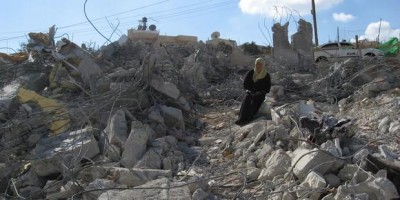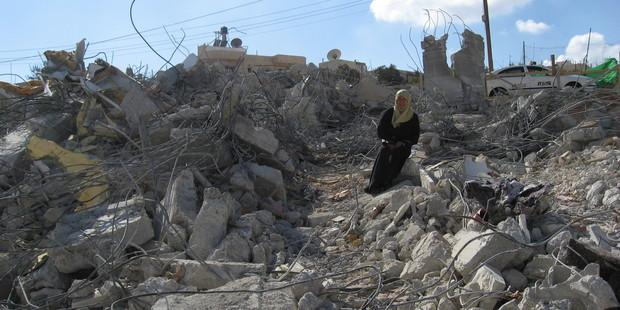13 December 2011 | Amnesty International

Israeli authorities have stepped up unlawful demolitions in the West Bank including East Jerusalem over the past year, displacing a record number of Palestinian families from their homes, an international coalition of 20 leading aid agencies and human rights groups said today.
The statement comes as the Middle East Quartet meets in Jerusalem in its latest effort to revive peace talks.
The sharp rise in demolitions in 2011 has been accompanied by accelerated expansion of Israeli settlements and an escalation of violence perpetrated by settlers, the groups said.
The humanitarian and human rights groups, including Amnesty International, Human Rights Watch, and Oxfam International, are calling for the Quartet to hold all parties to the conflict to their international law obligations. The Quartet must, therefore, press the Israeli government to immediately reverse its settlement policies and freeze all demolitions that violate international law.
“The increasing rate of settlement expansion and house demolitions is pushing Palestinians to the brink, destroying their livelihoods and prospects for a just and durable peace. There is a growing disconnect between the Quartet talks and the situation on the ground. The Quartet needs to radically revise its approach and show that it can make a real difference to the lives of Palestinians and Israelis.” said Jeremy Hobbs, Executive Director, Oxfam International.
The evidence of rapidly deteriorating situation on the ground includes:
- Doubling the number of people displaced by demolitions: Since the beginning of the year more than 500 Palestinian homes, wells, rainwater harvesting cisterns, and other essential structures have been destroyed in the West Bank including East Jerusalem, displacing more than 1,000 Palestinians, UN figures show. This is more than double the number of people displaced over the same period in 2010, and the highest figure since at least 2005. More than half of those displaced have been children for whom the loss of their home is particularly devastating.
- Accelerating settlement expansion: Plans for around 4,000 new settler housing units have been approved in East Jerusalem over the past 12 months – the highest number since at least 2006, according to Peace Now. In November, moreover, Israel announced plans to speed up construction of 2,000 new units in the West Bank including East Jerusalem.
- Sharp increase in settler violence: violent attacks by settlers against Palestinians have escalated by over 50% in 2011 compared to 2010, and by over 160% compared to 2009, the UN reports. 2011 has seen by far the most settler violence since at least 2005. Settlers have also destroyed or damaged nearly 10,000 Palestinian olive and other trees during this year, undermining the livelihoods of hundreds of families. The perpetrators act with virtual impunity, with over 90% of complaints of settler violence closed by the Israeli police without indictment in 2005-2010.
- Impending threat of forced displacement of Bedouin: Up to 2,300 Bedouin living in the Jerusalem periphery could be forcibly and unlawfully relocated if Israeli authorities follow through with their reported plans in 2012, which would destroy their livelihoods and threaten their traditional way of life. Rural communities in the Jordan Valley are also facing the prospect of further demolitions as settlements continue to expand.
“The Quartet should call ongoing settlement expansion and house demolitions what they are: violations of international humanitarian law that Israel should stop,” said Sarah Leah Whitson, Middle East director at Human Rights Watch.
“Israel’s escalating violations show the fundamental failure of the Quartet’s approach. It’s time for the Quartet to understand that they cannot contribute to achieving a just and durable solution to the conflict without first ensuring respect for international law,” said Phillip Luther, Middle East and North Africa Interim Programme Director, Amnesty International.

